Prof. Ramasamy
Biotechnology is a set of powerful tools that employ living organisms (or parts of organisms) to make or modify products, improve plants or animals, or develop microorganisms for specific uses. Biotechnology is a research oriented science, a combination of Biology and Technology.
It covers a wide variety of subjects like Genetics, Biochemistry, Microbiology, Immunology, Virology, Chemistry and Engineering. It also has tight links and relationships with many other subjects like Health and Medicine, Agriculture and Animal Husbandry, Cropping system and Crop Management, Ecology, Cell Biology, Soil Science and Soil Conservation, Bio-statistics, Plant Physiology, Seed Technology and the like. Biotechnology is the use of living things, especially cells and bacteria in industrial process. With demand for biotechnologists growing prospects in this industry are increasing.
Dr Ramasamy is the Dean, School of Biotechnology at SRM University
Where to look for a programme in India?
Image: Top biotech schools in public and private sector in IndiaSince biotechnology draws upon diverse basic sciences, world over, it is offered as a specialist interdisciplinary programme. But for academics, students and knowledge providers in India it has shown promise, and attraction as a separate discipline and hence some of the age old programmes like botany, zoology, marine biology etc. have conveniently come under the umbrella of biotechnology as plant biotechnology, animal biotechnology marine biotechnology. This approach has generated a number of 'me too' programmes and sub standard manpower. So it is imperative that a student identifies the right institution and the right programme.
Government colleges
Although Jadavpur University, Kolkata was the first university in India to start a full-time course in biotechnology by initiating a degree programme in food technology way back in 1964-65, Indian Institute of Technology, Delhi was the first institution in the country to draw up a proper curriculum for a degree course in biotechnology.
The best departments in biotechnology are at the IITs. Though IITs, do not boast of a strong life science division, their strength in engineering comes to their rescue. Thanks to the seed funding provided by Department of Biotechnology, some of the finest institutions in public sector came into being at University of Hyderabad, Jawaharlal Nehru University, Banaras Hindu University and Pondicherry University amongst others.
Private institutions
There are few private institutions as well, who have world class facilities and have attempted to compete with the public sector institutions. An additional advantage in these institutions is that they attempt to equip their students with hands-on-training, soft skills training, business management courses and IP (intellectual property rights) awareness.
Types of courses
Image: Rediff Archives5 year integrated M.Sc/ M.Tech courses
Today a number of colleges offer Bachelors programmes in biotechnology. Since the course demands diverse skill sets, a strong disciplinary training in various basic sciences, would, in my opinion, add more value in the long run than a B.Sc (Biotech) programme. Unless of course, one opts for a five year integrated MSc/ MTech programme offered by institutions like IITs.
M.Sc (Biotechnology)
This is a very popular course where any graduate in biology or related sciences is eligible to apply. There are two major entrance exams for the course. The All India Biotechnology Entrance test conducted by JNU for admission to about 500 odd seats in the 32 university departments is the first major one. IITs admit students through a Joint Admissions Test for IITs. Most good private sector universities have their own independent examinations. While public sector schools are subsidized, and have very low fees, the private sector ones charge substantially higher fees.
This is a recent entrant in to the pantheon of famed MBA degrees. It normally requires a candidate to have a bachelor's degree in biological or related sciences. The degree might enable one to move into business functions in a biotech company with greater ease, since one has developed a certain understanding of the sector even before one has joined it. Institutions like NMIMS, Pune University offer such degrees.
PhD (Biotechnology)
If it is a career in research, that you're are seeking, then a PhD in biotechnology is a must. Most of the institutions mentioned above also offer you the option to pursue research studies. A valid GATE score (for engineering graduates) or a high score in the UGC-JRF or a CSIR or ICMR fellowship would ease your entry and also provide you with stable fellowships. Most of the institutes offer part time teaching/ research assistance to candidates unable to obtain a fellowship. Many students try and obtain their PhD from foreign universities as well.
Some of the institutions in India like the IISc also offer an integrated 5 year PhD programme after a BSc.
MBA (Biotechnology)
This is a recent entrant in to the pantheon of famed MBA degrees. It normally requires a candidate to have a bachelor's degree in biological or related sciences. The degree might enable one to move into business functions in a biotech company with greater ease, since one has developed a certain understanding of the sector even before one has joined it. Institutions like NMIMS, Pune University offer such degrees.
How to select a college
Image: Source: US Today Rankings 2007Every now and then the public and the corporate leaders indicate that our biotech graduates are not industry ready and curriculum should be modified. But the harsh truth is that neither does the biotech industry have a clear understanding of the manpower they need nor are the skills required for employability understood by academicians.
Here are some tips to select the right universities.
Reputation: This is the first thing a recruiter would look for. An IIT degree is considered the best and deservedly so since IIT's take great care in the way, they launch a course and select students. For example, IIT, Delhi took nearly five years to design and develop a curriculum before initiating a degree in biochemical engineering and biotechnology courses.
Faculty: Qualified faculty is a must for any programme, if it has to offer you value. Look for the ratio of PhD to non PhDs. Higher the PhD numbers, better would be the research environment on the campus. Look for the credentials and achievement of the faculty. Better faculty means better learning experience.
Infrastructural facilities: A good lab is a sine qua non for a research based programme like Biotechnology. Some of the private universities might score high on their infrastructure. Go behind the imposing structure, and look around actual equipment, level of supplies, ease with which a lab lets a student perform an experiment all that counts. Hands on experience will be the most important asset you would bank on.
Teaching style: This is a very important but most difficult factor in assessing an institute. Some universities like MKU, JNU and TNAU have established a healthy participatory learning process. Ask students who are already pursuing a programme to ascertain, if the learning goes beyond books. Hands on training and live projects are a must.
Industry interface: Find out if the faculty is encouraged to take-up consultancy, funded projects, sabbaticals in firms and overseas training. Higher the level of interaction with the industry better would be your chances of finding employment.
How to prepare for the entrance?
In India entrance exams are held for admissions to all top colleges and universities. The main topics for the entrance exams at the under-graduate level include the basic topics of physics, chemistry, mathematics and biology. Clearing the entrance exams require in depth knowledge of concepts and the ability to think logically. The best way to prepare is to solve previous years question papers. Coaching centers might help, but again be wary of parting with your money, when an institute promises you a 15 day crash course to success.
Do you fit the bill?
This is the function of what domains; you want to enter, within the sector.
Domain knowledge: This is a no brainier. But there are an astounding number of students who think their communication skills and inter personal skills would see them through. Not in a science based industry like biotech.
Research skills: If it is a hard core research function, the primary requirement is an analytical mind and loads of patience. The ability to persevere with a problem for long periods of time without tiring is a must for any researcher. So is the ability to quickly assess the level of difficulty in a problem. Research by its very nature is risky, and the ability to minimize that risk would go a long way in boosting your career.
Drafting skills: Since biotechnology is a heavily IP based industry, ability to work on built up research finding, without impinging on previous protected research is a skill in great demand. The skill to communicate precsely is also equally important.
Soft skills: Increasingly research in organised large scale endeavors are places where multidisciplinary teams from multiple geographies work and collaborate real time. So ability to work as a team is a very crucial attribute for a successful biotechnologist.
Career opportunities in the sector
Image: Source: Kiran Mazumdar Shaw, as communicated to Nandita DattaYet another potential area of research is agricultural biotechnology. This sector is populated on one hand by subsidiaries of TNCs and on the other hand by highly specialized technology companies that undertake services for specified research, like contract research organisations. This is a relatively new concept in the agriculture R&D in India. Some of the companies like Avesthagen qualify in this group. Having succeeded in BT cotton, there are attempts to go for BT products in food crops. The manpower required for this activity is derived mostly from plant breeding and botany.
The industry is keen to get trained hands from Molecular breeding. Though biotechnology has developed as a discipline in several academic (public, private and affiliated) institutions, need based specialization is yet to blossom in India. The developed world on the other hand has initiated focused centres of activity and specially trained manpower is supplied for the niche industry.
Yet another domain which would recruit in the long run would be the biofertiliser and biopestisides industry. While attempts are on to develop better formulations and cost effective commercially viable biopesticides including microbial pesticides, parasitoids and bacteria, this sector is yet to see active recruitment.
At the present moment great emphasis is being given on developing bio-fuels as an alternate source of fuel. Research is also in progress for the development of genetically modified bamboos that is an alternate source of fibre and also an excellent carbon absorber. Industrial microbiology is also a major area of research for development of new products that are of immense importance for the pharmaceutical industry.
Existing industries like sugar and distilleries in India have enjoyed the contribution from tissue culture and bio-inputs. Process modifications and metabolic engineering of yeasts will add to the requirement for biotechnologists. Several focused programmes are required to adds to the skills of the employed manpower.
International secnario in biotechnology
Image: Rediff ArchivesSome of the best universities in the world to pursue a degree in biotechnology include Harvard University, University of Tokyo, University of London, University of California, Penn State University, John Hopkins University, Stanford University, Yale University, University of Washington, Duke University, National University of Singapore and University of Western Australia.
A masters degree in biotechnology empowers a student to carry out research in any given area of biotechnology, be it plant biotechnology or animal biotechnology. While pursuing a masters degree in biotechnology one has to grasp the basics of process control and process calculations on the chemical engineering front.
Fluid mechanics is one of the main aspects of mechanical engineering that a biotechnologist has to be thorough with. A successful biotechnologist must also know the basics of computer aided designing and process simulation. Clinical biotechnology is another major area of study for a biotechnologist.
The core subjects of a biotechnologist are microbiology and its application in the industry. Molecular biology, biochemistry and statistical biology are also of immense importance to a biotechnologist.
So there is no alternative to in depth study and the sector is fast evolving. One should be constantly on the look out for new knowledge domains that are impacting the sector and the ability to assimilate and respond to those changes is very crucial. A healthy knowledge of ethical issues is also important
This is a knowledge intensive field and a thirst for knowledge is a sine qua non for survival here. My best wishes.

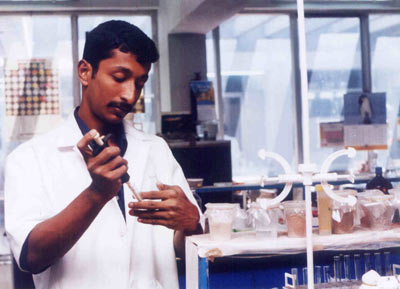
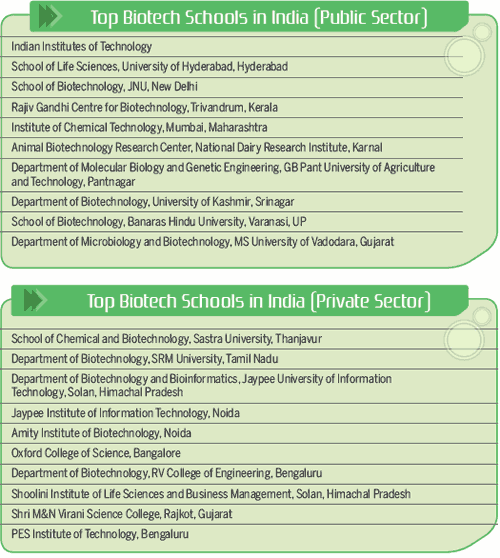
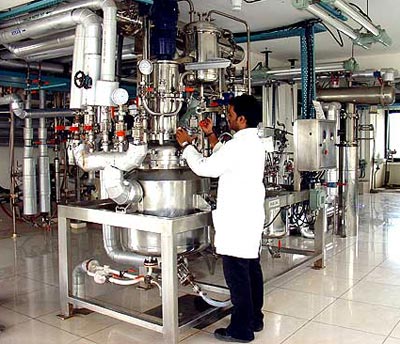
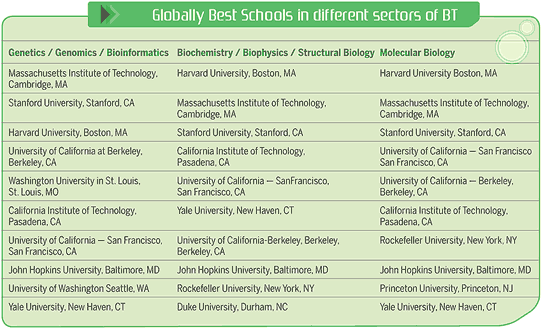
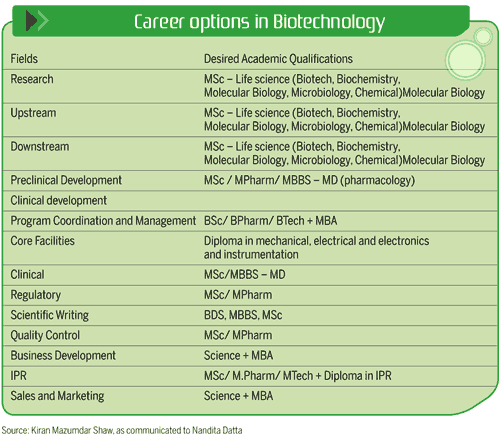
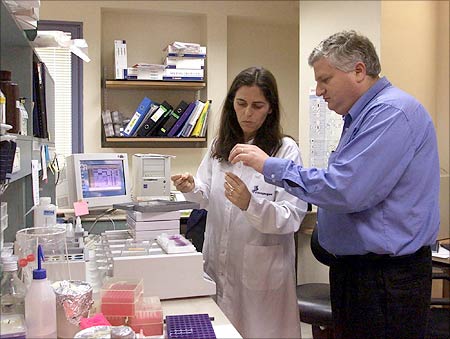
Comment
article